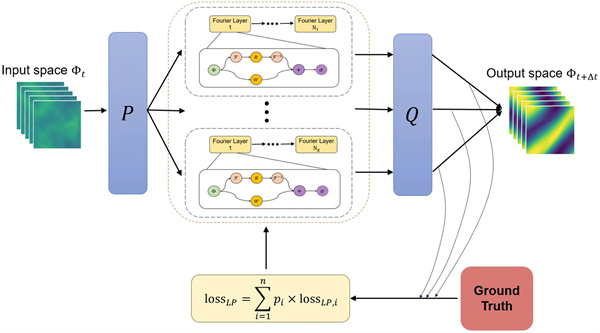The University of Michigan – Shanghai Jiao Tong University Joint Institute (UM-SJTU JI, JI hereafter) undergraduate student Hao Zhang has won the first prize for oral presentation at the First International OpenFOAM Combustion Workshop. The workshop hosted by the National University of Singapore (NUS) Chongqing Research Institute was held during June 19-20 in Southwest China’s metropolitan city Chongqing.
Mechanical Engineering major Hao Zhang, who enrolled at JI in 2020, presented the research project titled “Fourier Neural Operator Method for Accelerating Reacting Flow Simulations” at the workshop. He was awarded the only first prize in the category, according to JI Associate Professor Dezhi Zhou, the advisor of the project team.

Hao Zhang (on the right) takes photo with his advisor Dezhi Zhou after receiving the first prize.

Diagram of the research project
Reacting flow problems involve the coupling of spatial and temporal multiscale phenomena, encompassing chemical kinetics, fluid mechanics, and particulate formation, posing significant challenges to numerical simulation and modeling. Traditional numerical algorithms suffer from substantial numerical stiffness and therefore heavily rely on high-performance computing resources.
To address this issue, Hao Zhang under the guidance of Professor Zhou, attempted to utilize machine learning algorithms to achieve high-precision solving and prediction of the partial differential equations and ordinary differential equations involved in reacting flows. Based on the paradigm of Fourier neural operators, which possess the ability to learn mapping relationships in infinite-dimensional Banach spaces, he proposed a multiscale Fourier neural operator architecture specifically tailored for reacting flow problems. This architecture, based on the judgment of characteristic scales of chemical components during combustion, achieved accurate prediction of multiscale temporal evolution of chemical components in reacting flows and demonstrated superior prediction accuracy compared to existing machine learning architectures.





